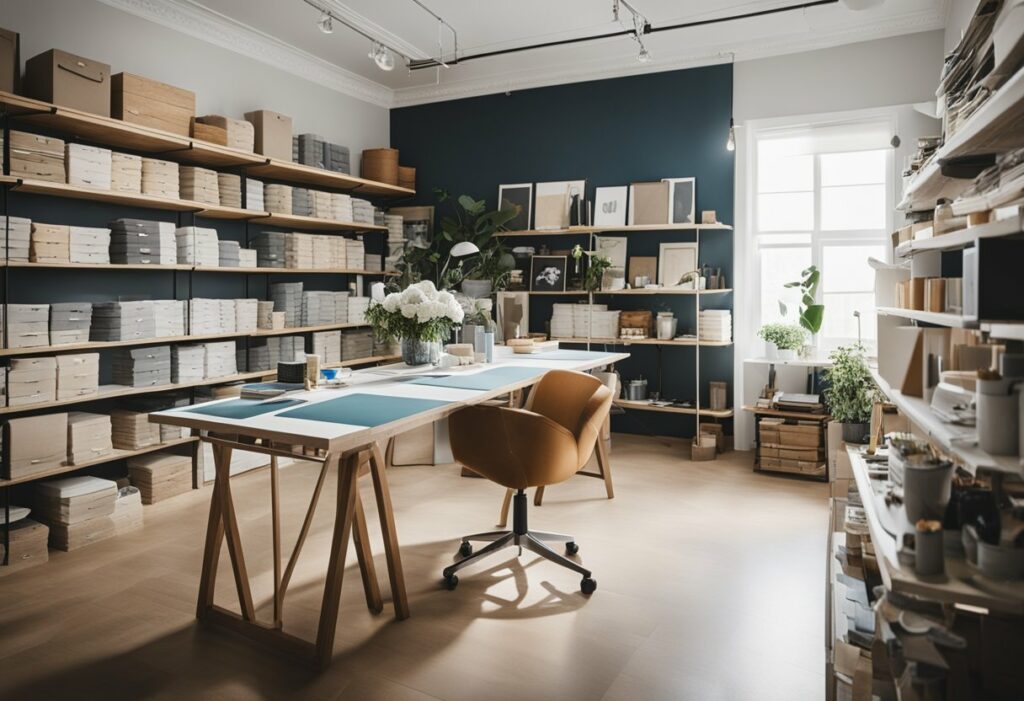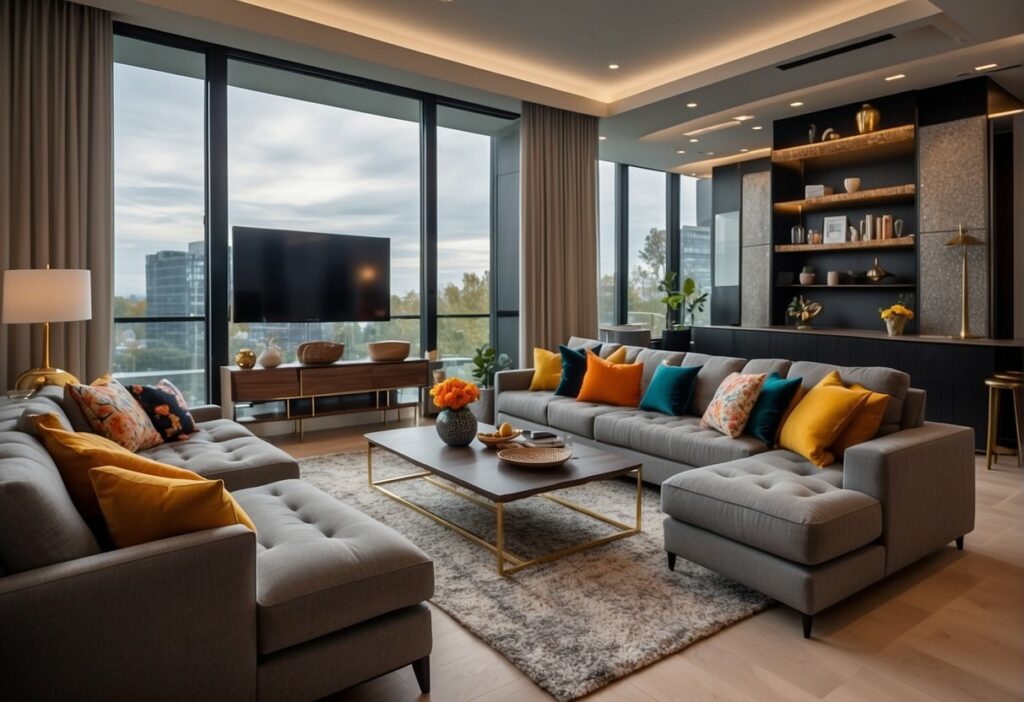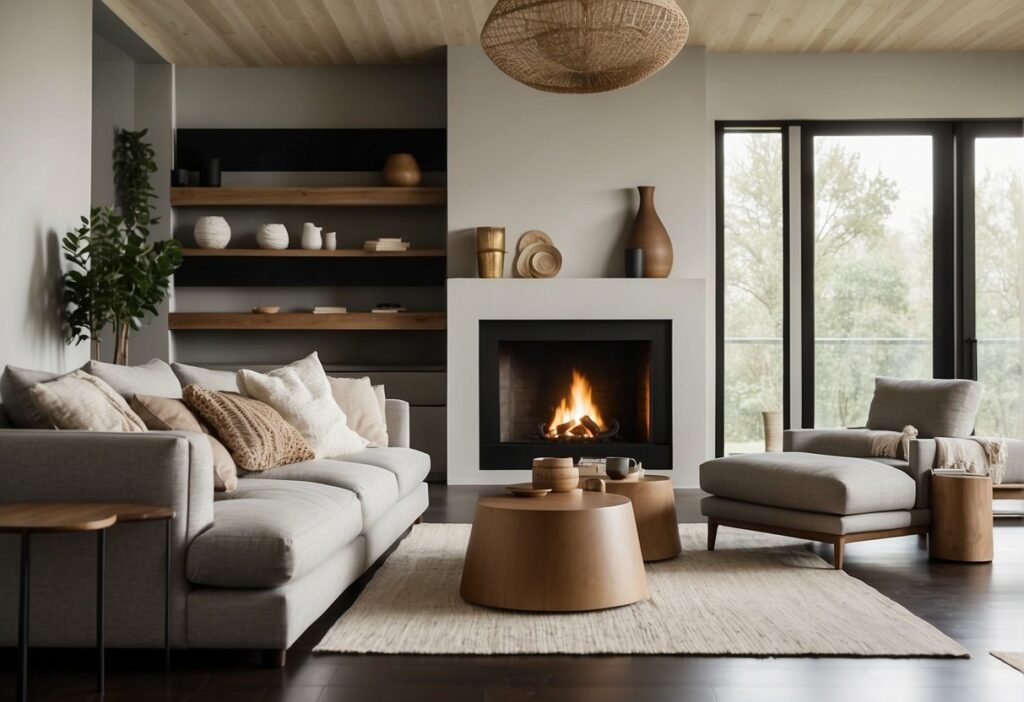Is Interior Design a Promising Career Choice?
If you have a passion for design and an eye for detail, you may be considering a career in interior design. But is interior design a good career choice? While it’s true that the industry is competitive and demanding, it can also be incredibly rewarding for those who are dedicated and hardworking.
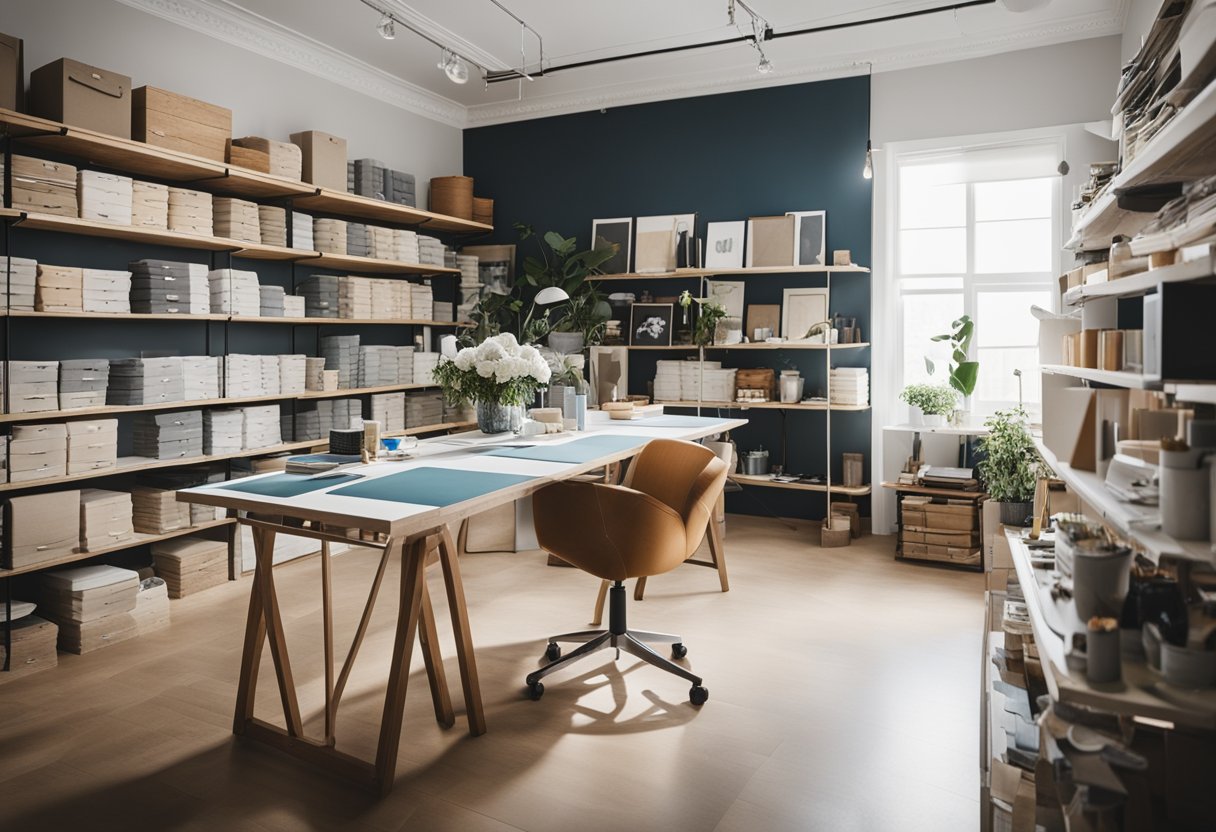
Exploring a Career in Interior Design As an interior designer, you’ll be responsible for creating functional and aesthetically pleasing spaces for clients. This can include everything from selecting furniture and accessories to choosing colours and materials. To succeed in this field, you’ll need to have a strong understanding of design principles, as well as excellent communication and problem-solving skills.
The Practicalities of Working in Interior Design While the idea of creating beautiful spaces may sound appealing, it’s important to consider the practicalities of working in interior design. This can include long hours, tight deadlines, and the need to stay up-to-date with the latest design trends and technologies. Additionally, the industry can be highly competitive, with many designers vying for the same clients and projects.
Key Takeaways
- Interior design can be an incredibly rewarding career for those with a passion for design and an eye for detail.
- To succeed in this field, you’ll need to have a strong understanding of design principles, as well as excellent communication and problem-solving skills.
- While the industry can be competitive and demanding, those who are dedicated and hardworking can find success in interior design.
Exploring a Career in Interior Design

If you love design, aesthetics, and creativity, then interior design might be a good career choice for you. Interior designers work on a wide range of projects, from residential homes to commercial spaces, and can specialize in areas such as sustainability, hospitality, or healthcare design. In this section, we will explore the education and training requirements, career path and specializations, and the creative aspects of interior design.
Education and Training Requirements
To become an interior designer, you typically need a bachelor’s degree in interior design or a related field. Interior design programs teach you the technical skills you need to create functional and beautiful spaces. You will learn about colour theory, materials and finishes, lighting, and CAD software. Additionally, you may need to complete an internship or apprenticeship to gain hands-on experience.
After completing your degree, you may want to consider becoming certified by the National Council for Interior Design Qualification (NCIDQ). This certification demonstrates that you have met certain qualifications and standards in the field of interior design.
Career Path and Specializations
Interior designers can work in a variety of settings, including design firms, architecture firms, and furniture stores. As you gain more experience, you may choose to specialize in a particular area of interior design, such as sustainable design or healthcare design.
In addition to specializing, you can also choose to pursue a career path that focuses on management or entrepreneurship. With the right qualifications and certifications, you could become a project manager or start your own interior design firm.
The Creative Aspects of Interior Design
One of the most exciting aspects of interior design is the opportunity to be creative and bring your vision to life. As an interior designer, you will work with clients to understand their needs and preferences, and then use your skills and knowledge to create a space that is both functional and beautiful.
You will need to have a good eye for design, a strong sense of aesthetics, and the ability to communicate your ideas effectively. With the right training and experience, you can turn your passion for design into a rewarding career in interior design.
The Practicalities of Working in Interior Design
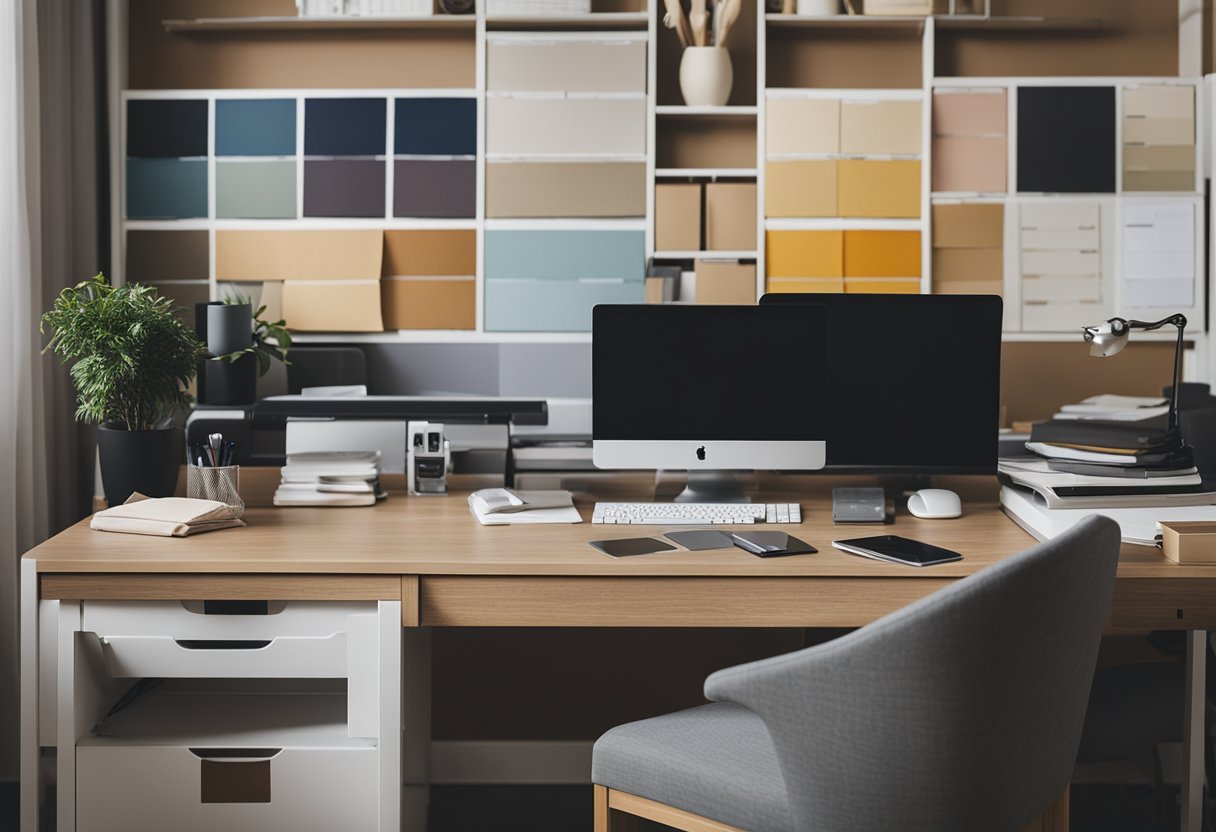
If you’re considering a career in interior design, it’s important to understand the practicalities of the job. While it can be an exciting and rewarding career, it’s also a competitive industry that requires a lot of hard work and dedication. Here are some key factors to keep in mind:
Navigating Client Relationships and Communication
As an interior designer, you’ll be working closely with clients to bring their vision to life. This means that strong communication skills are essential. You’ll need to be able to listen carefully to your clients’ needs and preferences, and be able to explain your ideas clearly and persuasively.
In addition to working with clients, you’ll also need to communicate effectively with contractors, interior decorators, architects, and other professionals involved in the project. This requires diplomacy, tact, and a good understanding of the roles and responsibilities of each team member.
Understanding the Business Side
Interior design is not just about creativity and aesthetics; it’s also a business. This means that you’ll need to have a good understanding of contracts, project management, and budgeting. You’ll need to be able to negotiate with clients, suppliers, and contractors, and be able to manage your time and resources effectively.
Staying Ahead with Technology and Trends
Technology is changing the way that interior designers work, and it’s important to stay up-to-date with the latest tools and techniques. For example, many designers now use 3D renderings to help clients visualise their designs, while others use social media and networking platforms to promote their work and connect with potential clients.
In addition to technology, it’s also important to stay on top of the latest design trends. This means attending trade shows and exhibitions, reading industry publications, and networking with other designers and professionals in the field.
Overall, a career in interior design can be a great choice if you’re passionate about creativity, aesthetics, and design. However, it’s important to be aware of the practicalities of the job, and to be prepared to work hard and stay competitive in a constantly evolving industry.
Frequently Asked Questions

What are the prospects for career growth in interior design?
The field of interior design offers many opportunities for career growth. You can start as an intern or an assistant and work your way up to become a senior designer or project manager. With experience, you can also establish your own design firm and take on more complex projects. The demand for interior designers is expected to grow in the coming years, so there will be plenty of job opportunities in the field.
Can one expect a lucrative salary in the field of interior design?
Interior design can be a well-paying career, but it depends on your level of experience and the type of projects you work on. According to BestColleges, the median annual salary for interior designers in the UK is around £30,000, but some designers can earn significantly more. Senior designers or project managers can earn salaries of £50,000 or more.
What are the potential challenges one might face in an interior design career?
Interior design can be a challenging career, and there are several potential obstacles you may face. For example, you may have to work long hours to meet project deadlines, and you may need to be able to manage multiple projects at once. Additionally, you may need to work with difficult clients or navigate complex design problems. However, for those who are passionate about design and creative problem-solving, these challenges can be rewarding.
How does the future look for interior design professionals?
The future looks bright for interior design professionals. As people continue to place more importance on the aesthetics and functionality of their living and working spaces, the demand for skilled designers will continue to grow. Additionally, as sustainable design practices become more important, there will be a need for designers who are knowledgeable about eco-friendly materials and practices.
In what ways can interior design be a fulfilling and joyful career?
Interior design can be an incredibly fulfilling and joyful career for those who are passionate about design and creativity. As an interior designer, you have the opportunity to make a real impact on people’s lives by creating beautiful and functional spaces that improve their quality of life. Additionally, you get to work on a wide range of projects, from residential to commercial, and every project is unique, so you’ll never get bored.
What are the primary advantages and disadvantages of a career in interior design?
The primary advantage of a career in interior design is the opportunity to work in a creative and fulfilling field. You’ll have the chance to work on a wide range of projects and make a real impact on people’s lives. Additionally, you can earn a good salary and enjoy a flexible work schedule. However, the primary disadvantage of a career in interior design is the potential for long hours and stressful deadlines. You’ll need to be able to manage your time effectively and work well under pressure to succeed in this field.

